Announcements

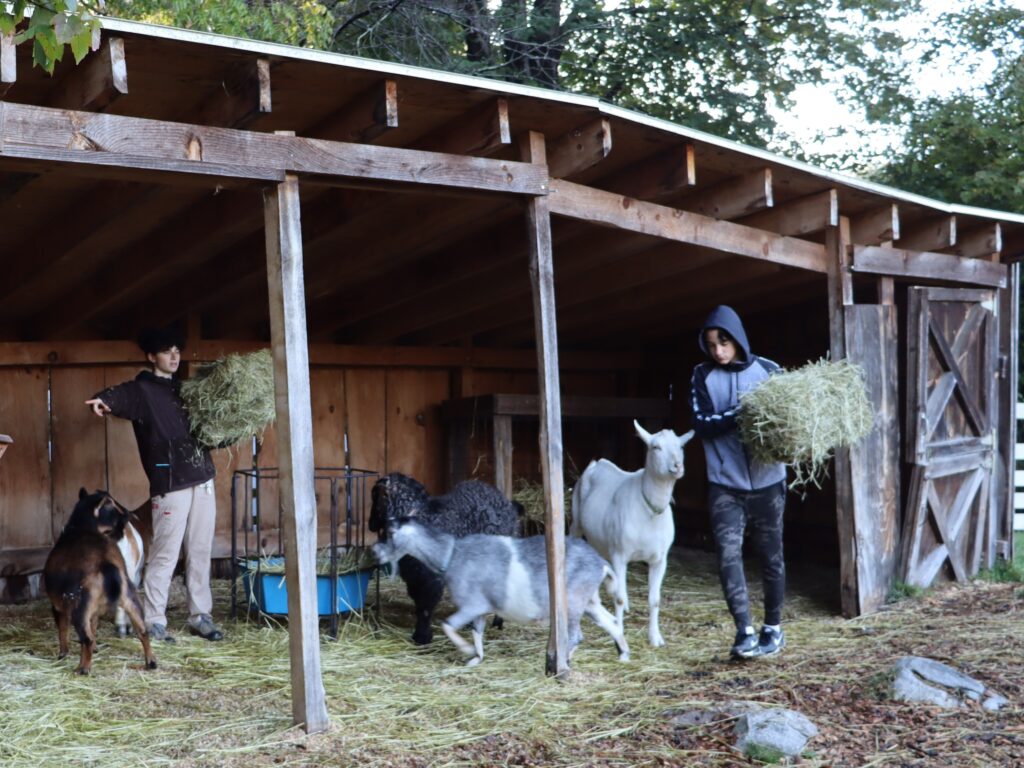
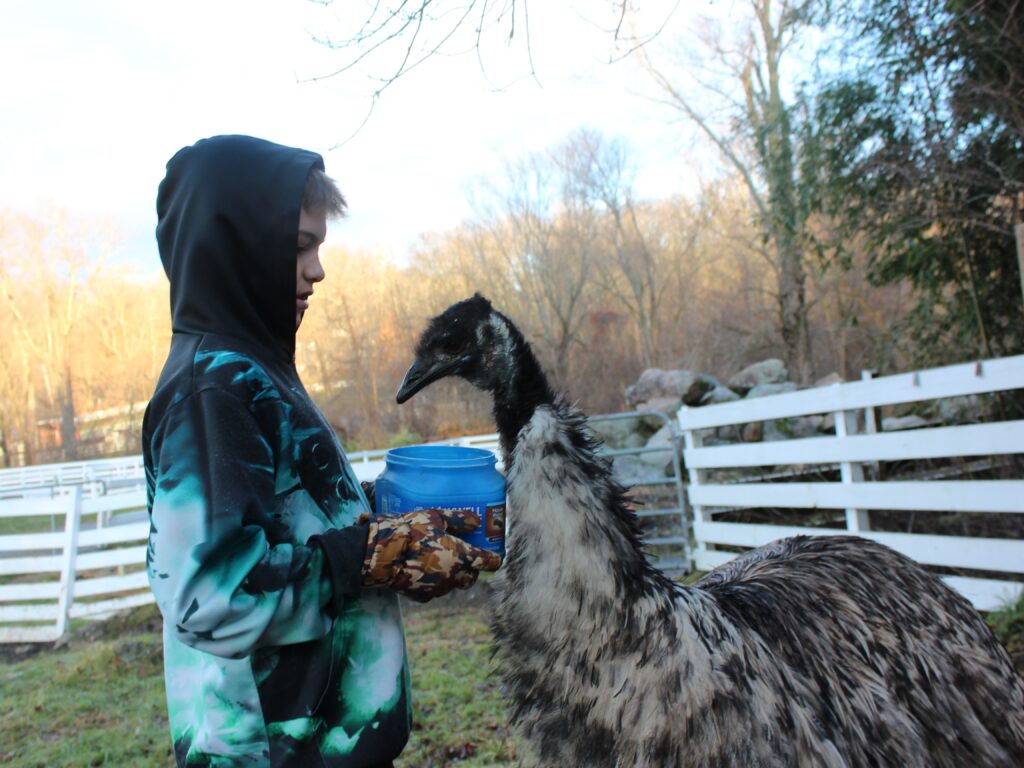
Green Chimneys’ Farm & Wildlife Center is home to over 300 domesticated farm animals and wildlife, ranging in size from the tiniest sparrow to a 2,000-pound Bactrian camel! Proper nutrition is key to keeping our animals in optimal health and happily engaged as therapy partners for our students. Dedicated staff work hard every day to meet their diverse dietary needs.
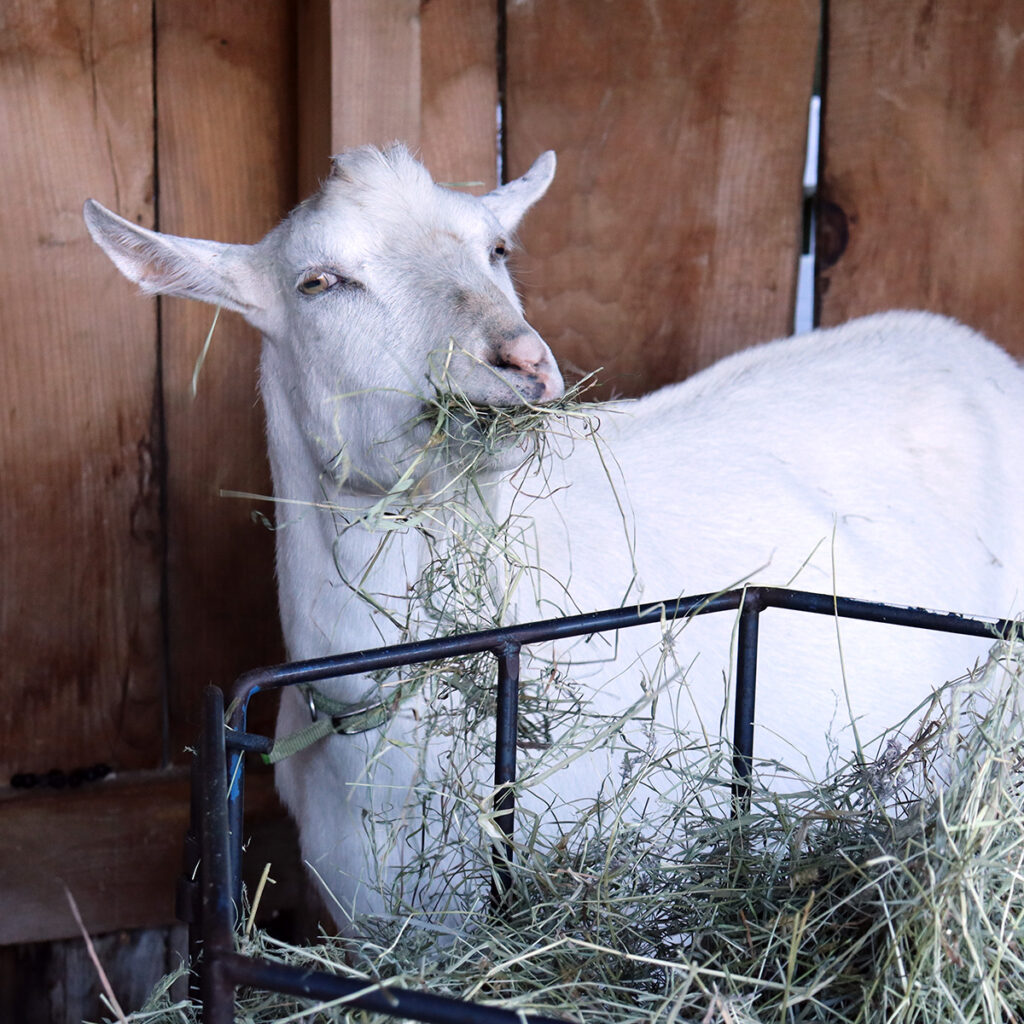
Hay is the dietary staple of our herd of 20 horses, and smaller farm animals, such as sheep and goats. Approximately 80 bales of fresh-cut hay, each weighing 60 pounds, are consumed weekly. That totals close to 10,000 bales over the course of a year! Senior equines also receive a special grain mixture, flax seed, and mineral supplements to keep their joints healthy.
Camels are herbivores so our hump-backed trio dines primarily on trees and grass. As they would in the wild, they also eat large quantities of loose-ground Himalayan salt for hydration and mineral content. The salt also helps to keep their muscles from cramping, for the same reason that humans need liquids containing electrolytes.
In our farm classroom, the guinea pigs receive a daily diet of hay, fruits and vegetables. Additionally, they’re supplemented with one orange a week to prevent Vitamin C deficiency.
The Wildlife Center cares for over 100 birds with a wide variety of diets. Carnivorous birds of prey – falcons, hawks, and owls – enjoy a daily meal of rodents, fish, large insects, small birds, and poultry.
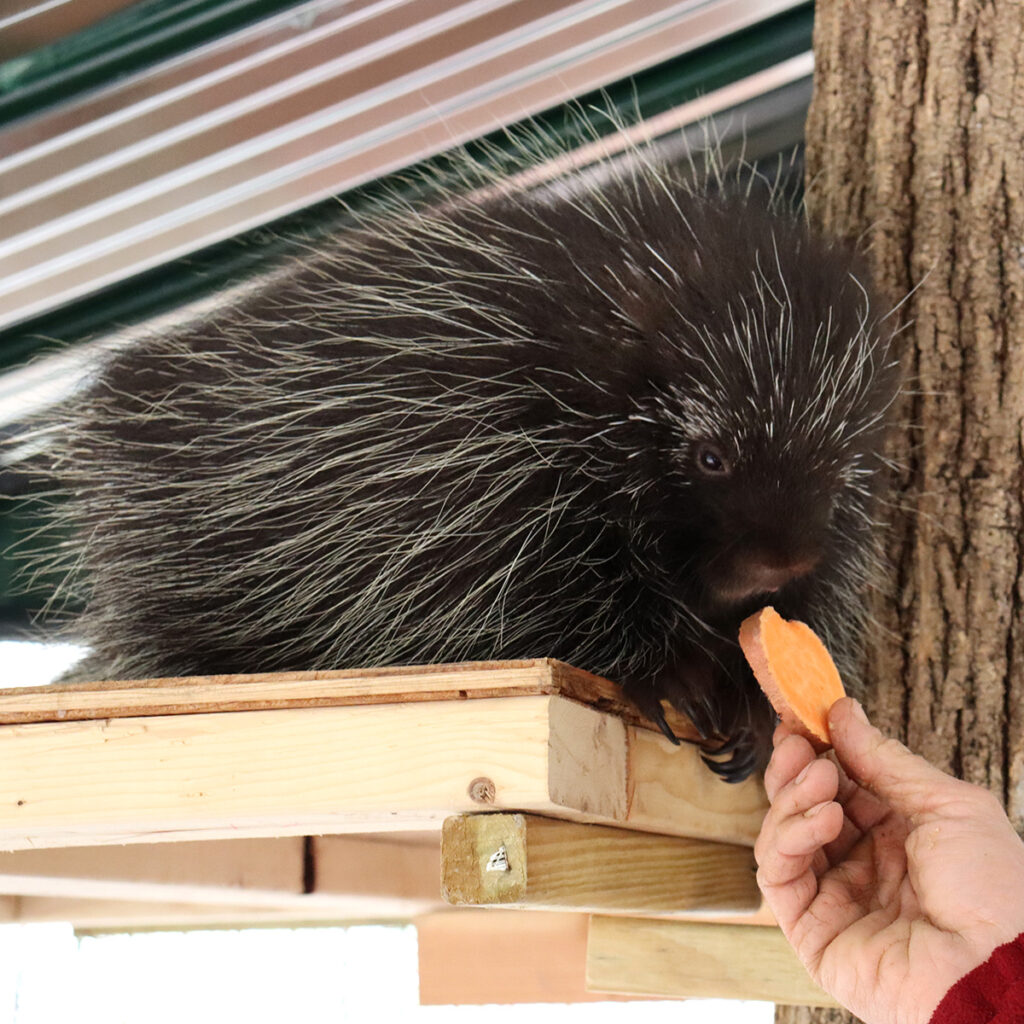
Ducks and geese dine on plants, insects and worms, and our 24 songbirds are fed seeds and grains.
An herbivore diet of bark, twigs, sweet potato, and corn keeps the porcupine healthy and content.
Since opossums are omnivores, and we serve our most recent wildlife addition protein, small animals and insects included, fruit, and vegetables at each meal.
The health, nutrition, and well-being of our animals is critical to the success of our farm and wildlife programming to educate and support children with special needs. You can help to sustain therapeutic animal-assisted activities by contributing to the care of these important and beloved animal partners. Learn more about animal sponsorship.
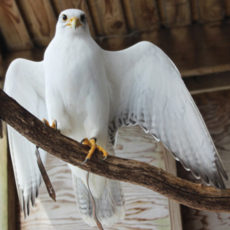
Crowned the best for falconry in medieval times, gyrfalcons were once reserved for kings. As the largest falcon in the world, with exquisite plumage ranging from bright white to deep charcoal, gyrs are revered for their powerful skill of flight. Their long wings make hunting waterfowl from 3,000-feet-high a feasible and fantastical feat. This falcon was flown in the sport of falconry for several years.